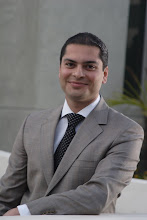Following the recent global financial turmoil and the collapse of several US financial institutions, the United States Government is encouraging foreign investments in US companies and institutions. Specifically, funds in the Gulf Cooperation Council countries are aggressively being encouraged to invest in the United States.
According to the Gulf News Agency, Robert Kimmitt, deputy secretary of the US Department of the Treasury, praised sovereign wealth funds (SWFs) such as the Abu Dhabi Investment Authority (ADIA) in sharp contrast to a debate in the West early this year that sought to put protectionist barriers against investments made by these organizations. Kimmitt said the US favors "the free flow of capital, both from sovereign wealth funds and all other overseas investors." He is meeting officials and business leaders in Saudi Arabia, Kuwait, Qatar, Iraq and the UAE, trying to encourage Arab funds to invest in the US.
The economic downturn and the ensuing panic has already created unprecedented investment opportunities in the US both in real estate and in science and technology. Lack of liquidity has caused some assets to be sold at significant discounts to the fundamental values of such assets. In this environment, prudent investors from around the world have started to take a closer look at the US market. As an example, Mohammad Ali Al-Hashimi, the Executive Chairman of Zabeel Investments, recently announced that his company is keen to invest in the US, but not willing to "overpay" for deals.
The question in the mind of many institutions is where the bottom of the market may be. However, for fundamental investors catching the bottom of the market must not be the sole objective. Acquisition of assets that are trading at discounts to intrinsic valuations shall translate into economic gains in the long term. Waiting for the market to bottom out might lead to realization of higher gains on investments but carries the risk of missing the bottom and ending up trying to make investments in a rising market, where quality assets will be harder to come by.
For sovereign wealth funds and other GCC pools of capital, it is prudent to continually evaluate opportunities and to make investments as the markets gradually stabilize. Investments in fundamentally sound and strong companies with proven cash flows and a clear growth path is a great diversification tool for GCC funds and right now the time is great for accessing unprecedented opportunities.
Showing posts with label GCC investment. Show all posts
Showing posts with label GCC investment. Show all posts
Monday, November 3, 2008
Thursday, September 11, 2008
GCC Investment Opportunities must not Be Overlooked
While there is considerable enthusiasm surrounding every move made by rich Middle Eastern sovereign funds, capital movements in the opposite direction must not be overlooked. The Gulf Cooperation Council (GCC) Countries represent one of the fastest growing regions in the world.
While the US economy has stalled, the global economy has expanded at 4% to 5% annually for the past 5 years, according to the National Real Estate Investor. Worldwide, the number of high-net-worth individuals grew 6% in 2007 to more than 10 million. In the same period the number of people with more than $30 million in assets grew more than 8% to over 100,000. According to the World Wealth Report, published by Merrill Lynch and Capgemini, the assets of the wealthy are expected to grow by 7.7% annually to $59 trillion in 2012. Most of this growth is expected to be in rapidly expanding economies like those in the GCC.
As discussed in my previous posts, the regional governments have been very smart in how they spend the wealth generated from increased petroleum revenues. Considerable capital has been invested in critical infrastructure and industry, slowly but surely, transforming the region into a hub for trade, business, tourism, and finance.
The Goldman Sachs Group is one among many of the Western institutions that has been aware of such opportunities. In a recent move, the group launched a new proprietary fund to invest in select assets in the Middle East.
While the US economy has stalled, the global economy has expanded at 4% to 5% annually for the past 5 years, according to the National Real Estate Investor. Worldwide, the number of high-net-worth individuals grew 6% in 2007 to more than 10 million. In the same period the number of people with more than $30 million in assets grew more than 8% to over 100,000. According to the World Wealth Report, published by Merrill Lynch and Capgemini, the assets of the wealthy are expected to grow by 7.7% annually to $59 trillion in 2012. Most of this growth is expected to be in rapidly expanding economies like those in the GCC.
As discussed in my previous posts, the regional governments have been very smart in how they spend the wealth generated from increased petroleum revenues. Considerable capital has been invested in critical infrastructure and industry, slowly but surely, transforming the region into a hub for trade, business, tourism, and finance.
The Goldman Sachs Group is one among many of the Western institutions that has been aware of such opportunities. In a recent move, the group launched a new proprietary fund to invest in select assets in the Middle East.
Labels:
dubai capital,
GCC economic growth,
GCC investment
Subscribe to:
Posts (Atom)


